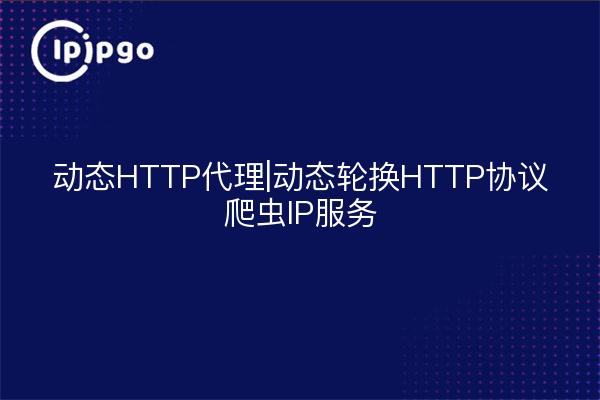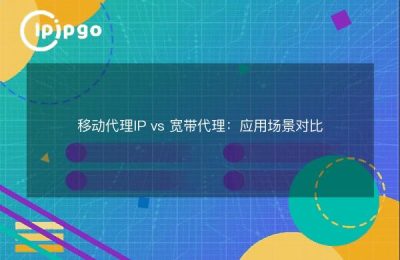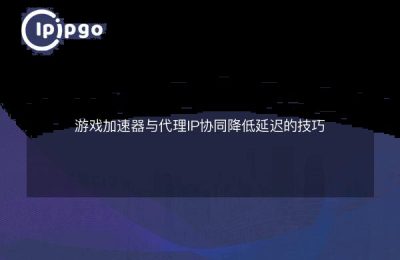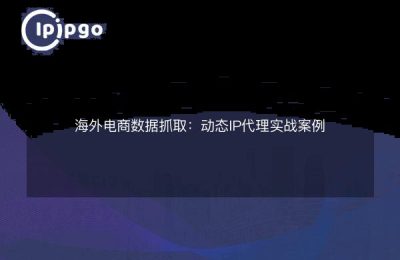
What exactly is a dynamic HTTP proxy?
A lot of friends who have just contacted the data collection will encounter the same problem: obviously no problem with the code, but the target site suddenly blocked your access rights. At this timeDynamic HTTP ProxyThis is your savior. It's like putting an "auto-face" feature on your crawler, using a different residential IP address for each request, making the target site think it's being operated by multiple real users.
At the heart of ipipgo's dynamic proxy service, for example, is theAutomatic IP address switching per requestThe system randomly assigns available IPs from a pool of residential IPs covering more than 240 countries. After you access their proxy interface in your code, the system randomly assigns available IPs from a pool of residential IPs covering more than 240 countries. this rotation mechanism is especially suitable for data collection tasks that need to run for long periods of time and effectively avoids the risk of blocking due to high-frequency access.
How to choose between dynamic and static proxies?
Many users will be confused whether to choose dynamic or static proxy, here is a simple judgment criteria:
- Requires a constant and stable connection(e.g. monitoring a page for a long time) → select static proxy
- Need for high-frequency identity change(e.g., collect commodity price data) → select dynamic agent
ipipgo's dynamic proxy has a hidden advantage: it supports theAutomatic rotation by number of requests. You can either set the IP to change every 10 requests or intelligently adjust the rotation frequency according to the anti-crawl mechanism of the target website. This flexibility is especially useful when dealing with different website strategies.
Three Steps to Complete Dynamic Proxy Configuration
Using Python's requests library as an example, the configuration for using the ipipgo dynamic proxy is actually quite simple:
import requests
proxies = {
"http": "http://用户名:密码@gateway.ipipgo.com:端口",
"https": "http://用户名:密码@gateway.ipipgo.com:端口"
}
response = requests.get("destination URL", proxies=proxies)
Note these three key points:
1. The authentication information should be provided by ipipgo.Dedicated account password
2. Each request is automatically assignedResidential IP in different areas
3. Automatically retries in case of connection failure3 times
Dynamic Proxy Tips and Tricks
Using dynamic proxies well also requires attention to these details:
1. Request header randomization: Works better with different User-Agents.
2. Request interval settings: Recommended minimum 2-second intervals
3. Exception handling mechanism: Proactively change IP when receiving 403/503 status code
4. Geographic targeting options: ipipgo supports accurate IP location down to the city
Frequently Asked Questions
Q: Does dynamic proxy affect the collection speed?
A: Quality service providers such as ipipgo can control the response speed within 800ms, the actual impact is minimal. Their nodes useBGP Intelligent Routingtechnology that automatically selects the fastest route.
Q: What should I do if I encounter a website asking me to log in?
A: It is recommended to use a fixed IP in the same session. ipipgo's dynamic proxy supportsession hold function, maintains the same IP address for a specified period of time.
Q: How do I test if the agent is valid?
A: Direct access is availablehttp://gateway.ipipgo.com/checkipThis interface returns the currently used egress IP and the geographic location.
By configuring the dynamic HTTP proxy wisely, and especially by choosing a proxy like ipipgo that has a90 million+ real residential IPsof service providers can significantly improve the success rate of data collection. TheirFull Protocol SupportFeatures can also meet the needs of HTTPS/WebSocket and other different scenarios, the next time you encounter anti-climbing strategy may wish to try this program.








